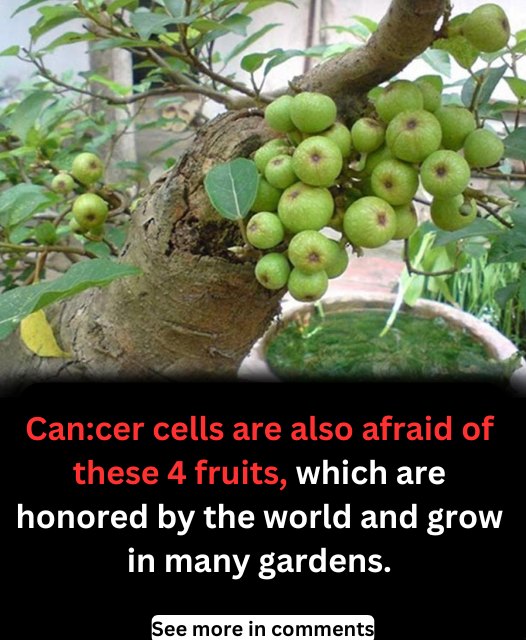—
### 3. **Papaya – The Tropical Cancer Fighter**
**Why it’s powerful:**
Papaya contains a unique enzyme called **papain**, as well as a variety of antioxidants like **beta-carotene**, **lycopene**, and **vitamin C**. These compounds work together to reduce oxidative stress and inflammation. Some lab studies show that papaya leaf extract may inhibit the growth of certain cancer cells without harming healthy ones.
**Bonus:**
Papaya seeds also have antimicrobial and anti-inflammatory properties that can support overall gut health—an important factor in immunity and cancer prevention.
**How to enjoy it:**
Eat it fresh, blend into smoothies, or use it in fruit salads. In tropical and subtropical regions, papaya trees can easily be grown in backyard gardens.
—
### 4. **Grapes – The Source of Resveratrol**
**Why it’s powerful:**
Especially dark-skinned grapes (like red or purple) are packed with **resveratrol**, a compound that has been linked to cancer cell apoptosis (programmed cell death) in lab studies. Grapes also provide **quercetin** and **catechins**, which help slow cancer progression and reduce inflammation.
**Research highlights:**
Some studies suggest that resveratrol can interfere with all three stages of cancer development: initiation, promotion, and progression.
**How to enjoy it:**
Eat them raw, freeze them for a refreshing snack, or drink organic red grape juice in moderation. Grapevines are not only beautiful but also productive when grown in home gardens.
—
### Final Thoughts: Nature’s Defense in Your Backyard
While fruits alone can’t replace conventional cancer treatments, incorporating antioxidant-rich produce like **pomegranate, blueberries, papaya, and grapes** into your daily diet is a smart and delicious way to support your health. They’re celebrated across cultures, backed by emerging science, and can often be grown right in your backyard.
As research continues to explore how natural foods impact disease prevention, these four fruits remain at the top of the list—honored not just for their taste, but for their power to protect.
—
**Disclaimer:**
This article is for informational purposes only and is not a substitute for professional medical advice, diagnosis, or treatment. Always consult with a healthcare provider regarding health concerns or dietary changes.
—
Would you like me to format this article for a blog, magazine, or social media series? I can also help create recipes using these fruits if you’re interested.
ADVERTISEMENT

